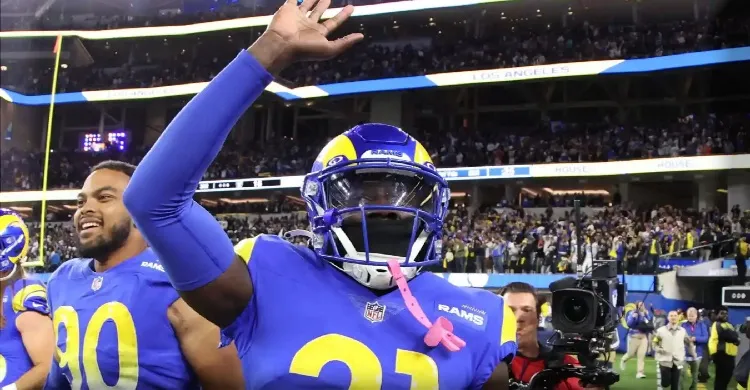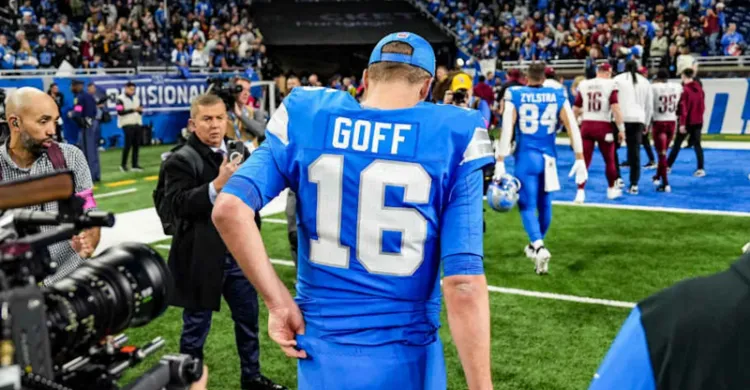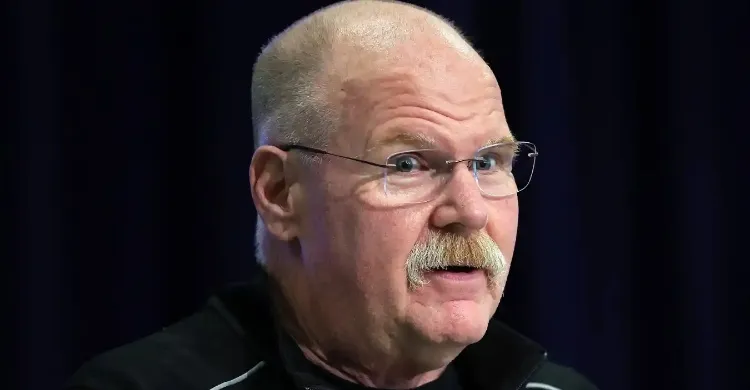CINCINNATI – It’s been 13 years since the Cincinnati Bengals drafted a guard in the first round, and it’s been 14 years since they drafted any offensive lineman they would reward with a second contract.

The Bengals head into the 2025 draft searching for help at the guard position after their two starters in 2024, Cordell Volson and Alex Cappa, ranked 57th and 58th, respectively, in Pro Football Focus pass-blocking grades.
The team benched Volson before injuries forced him back into the lineup, and the Bengals cut Cappa prior to free agency.
And it wasn’t until 11 days into free agency that they addressed the position by signing Lucas Patrick, who will be 32 in July.
Therefore all signs point to the Bengals going after a guard with a premium pick in this year’s draft.
“I think we’ve got competition there,” Cincinnati head coach Zac Taylor told reporters Monday at the league’s annual meetings in West Palm Beach, Fla.
That competition features Patrick and Volson battling veteran backup Cody Ford, 2023 undrafted college free agent Jaxson Kirkland and, presumably, a draft pick – or two – for starting jobs.
“It would be foolish of me to speak before the draft,” Taylor said. “Let the draft shake out, and then I’ll give you a better answer after the draft.”
Kevin Zeitler was the last guard the Bengals took in the first round, selecting him 27th in 2012 after trading back from No. 21.
The year prior, the Bengals drafted guard Clint Boling in the fourth round and eventually rewarded him with a five-year, $26 million extension in 2015, making him the most recent offensive lineman draft pick to receive a second contract with the franchise.
While that’s obviously not a great track record for the Bengals front office, history suggests guard is one of the hardest positions to hit on in the draft, especially right away.
Which only makes the Bengals’ lack of urgency in free agency more puzzling.
Since 2015, there have been 42 guards who played at least 500 snaps as a rookie.
Of those 42, only 11 received a contract extension with the team that drafted them, although Alijah Vera-Tucker could make it 12 if the Jets extend him in 2026 after playing on the fifth-year option for $15.9 million this season.
Even when teams hit on their guard picks, it usually takes until their second season before they are playing at an upper-echelon level.
In addition to the 42 guards who played at least 500 snaps as rookies from 2015-21, there are another 19 who were drafted from 2022-24 (not extension eligible yet).
Of those 61 guards, only two have ranked in the Top 20 in pass-blocking grade as a rookie.
Indianapolis’ Quenton Nelson was 12th in 2018, and Green Bay's Elgton Jenkins was 20th in 2019.
Only 11 others even made it into the top half of the league, ranking 32nd of better.
That's 13 out of 61 (21.3 percent) performing in the top half of the league.
The average pass-block rank for rookie guards who played at least 500 snaps is a staggering 48th.
Are PFF grades the end all?
Of course not.
But it’s a solid baseline to compare players at the same position over the span of a decade.
Since 2015, there have 15 different guards to earn first- or second-team All Pro honors.
Here is where each ranked in pass blocking and run blocking in their first season with at least 500 snaps at the guard position.
Marshal Yanda, third round, 2007
Yanda, who played his full 13-year career with the Ravens, didn’t hit the 500-snap threshold until his third season in the league when he ranked 30th in pass blocking and 19th in run blocking.
He would go on to earn two first team All Pro nods and five second team selections while making eight Pro Bowls.
Josh Sitton, fourth round, 2008
He became a full-time starter in his second season with the Packers and ranked 10th in pass blocking and 11th in run blocking.
He was voted second team All Pro three times and made four Pro Bowls.
Roger Saffold, second round, 2010
Saffold is an outlier because he played his first three seasons at tackle before switching to guard in 2013. He was voted second team All Pro in 2017.
David DeCastro, first round, 2012
After appearing in only four games as a rookie, DeCastro ranked 29th in pass blocking and 12th in run blocking in his first full season as a starter.
He went on to be named first team All Pro twice and second team once.
Kelechi Osemele, second round, 2012
He played right tackle as a rookie before switching to guard.
A season-ending injury in Week 7 in 2013 kept him under 500 snaps. In his third season in 2014, he played 1,069 snaps and ranked 15th in pass blocking and fifth in run blocking.
He was voted first team All Pro in 2016.
Zack Martin, first round, 2014
The future Hall of Famer dominated as a rookie, ranking second in pass blocking and 12th in run blocking while being named first team All Pro.
He would go on to win seven first team honors and two second team nods.
Joel Bitonio, second round, 2014
Another fast starter, Bitonio ranked fourth in pass blocking and 20th in run blocking as a rookie.
After three second team All Pro selections in 2018, 2019 and 2020, Bitonio made first team in 2021 and 2022.
Andrew Norwell, undrafted, 2014
Undrafted out of Ohio State, Norwell ranked 24th in pass blocking and 27th in run blocking as a rookie.
The Cincinnati native’s only All Pro honor was a first team selection in 2017.
Brandon Scherff, first round, 2015
He was 41st in pass blocking as a rookie and 21st run blocking.
Scherff earned his first and only All Pro selection as a first team in 2020.
Joe Thuney, third round, 2016
The Dayton native started all 16 games for the Super Bowl champion Patriots, ranking 51st in pass blocking and 41st in run blocking.
He’s been voted first team All Pro each of the last two seasons.
Quenton Nelson, first round, 2018
As mentioned earlier, Nelson was 12th in pass blocking as a rookie. And he was third in run blocking on his way to his first of three consecutive first team All Pro selections.
Nelson was second team All Pro in 2023 and 2024.
Wyatt Teller, fifth round, 2018
Teller didn’t play enough for the Bills as a rookie to qualify in the PFF rankings, but in 2019 with the Browns he was 35th in passing blocking and 58th in run blocking.
By 2020 he was an All Pro, earning second team honors, which he claimed again in 2021.
Chris Lindstrom, first round, 2019
The future All Pro only played five games as a rookie.
In 2020, he ranked 18th in pass blocking and 10th in run blocking. He’s been a second team All Pro selection each of the last three seasons.
Quinn Meinerz, third round, 2021
Meinerz was 30th in pass blocking and 35th in run blocking. He was a first team All Pro pick this past season.
Tyler Smith, first round, 2022
After playing tackle as a rookie, Tyler Smith ranked 15th among guards as a pass blocker and sixth in run blocking 2023, earning second team All Pro honors.
While that list shows how tough it is for guards to excel right away in the league, it’s also worth noting that team success isn’t necessarily hamstrung by rookie guard play.
In fact, the number of teams who make the postseason with a rookie guard playing at least 500 snaps is almost the same as those that fall short.
Of the 61 guards to log at least 500 snaps as rookies, 29 reached the postseason that first year, with 20 winning division titles and nine capturing wild card spots.
Two of them, Thuney and Denver’s Max Garcia in 2015, won the Super Bowl.
That means 29 made the playoffs and 32 did not.
It’s an important note because many assume whichever guard the Bengals use a premium pick on later this month will win one of the two starting jobs.
And the pressure will be on to perform because it’s an offense built to win right now.
Whomever the Bengals draft doesn’t have to be All Pro-worthy as rookie, he just can’t be a bust the way that so many of their other interior offensive linemen have been since Boling and Zeitler more than a decade ago.



